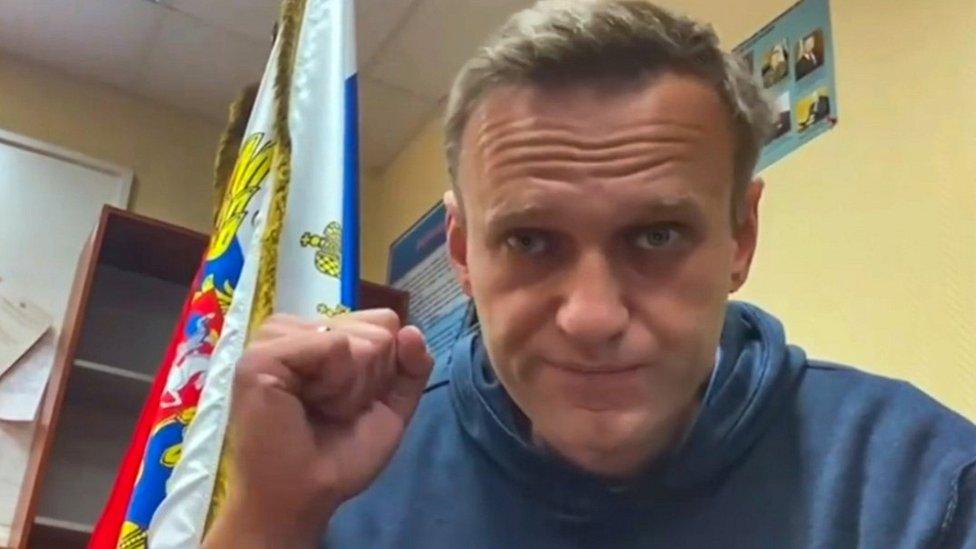Corruption claims 'nonsense' - Russian PM Medvedev
- Published
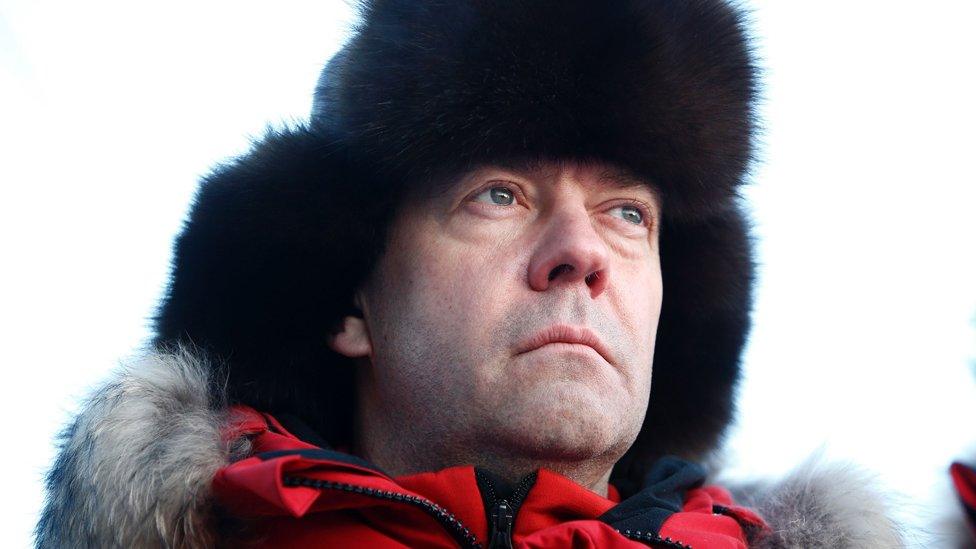
Mr Medvedev is one of President Putin's closest allies - their ties go back decades
Russian Prime Minister Dmitry Medvedev has dismissed as "nonsense" allegations that he has secretly accumulated a vast fortune including country estates.
The corruption allegations came in a video, external by opposition campaigner Alexei Navalny, viewed by millions on YouTube.
Mr Medvedev's properties include a vineyard in Italy, a mountain villa, and two luxury yachts, it is alleged.
"They pick up any old tosh, nonsense, about me or my acquaintances, and people I've never heard of," he said.
It is the first time he has commented on the claims published by Mr Navalny's anti-corruption network on 2 March.
Mr Navalny said the prime minister profited from a complex business network which concealed "bribes" by using offshore schemes and charity foundations.
The claims stirred up mass protests which saw thousands of Russians march against the government in several cities on 26 March. Hundreds of demonstrators were detained, many of them young supporters of Mr Navalny.
The following day a court jailed Mr Navalny for 15 days for disobeying a police officer.
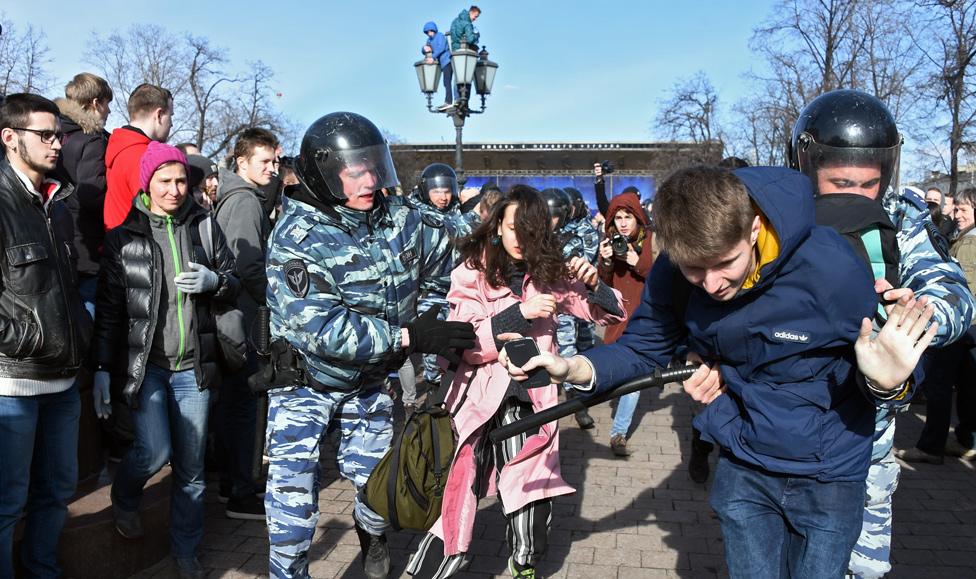
Thousands of Russians protested against corruption on 26 March, defying a ban on such rallies
Mr Medvedev said the "provocative" video was "expensively produced - financed by private sponsors" and "aimed at achieving a specific political result".
"They lure young people via social media, and those youths come out with certain slogans, unfortunately in violation of the law. In essence, they expose them to the machinery of law enforcement, and those youths suffer as a result."
He was speaking to workers at a bacon factory in the Tambov region, south of Moscow.
Mr Navalny - a fierce critic of President Vladimir Putin and his Kremlin associates - plans to run for the Russian presidency next year.
Mr Medvedev said he had "strong nerves" which protected him from such attacks. "If I reacted each time to such attacks I simply wouldn't manage to get on with my job as normal."
- Published2 April 2017
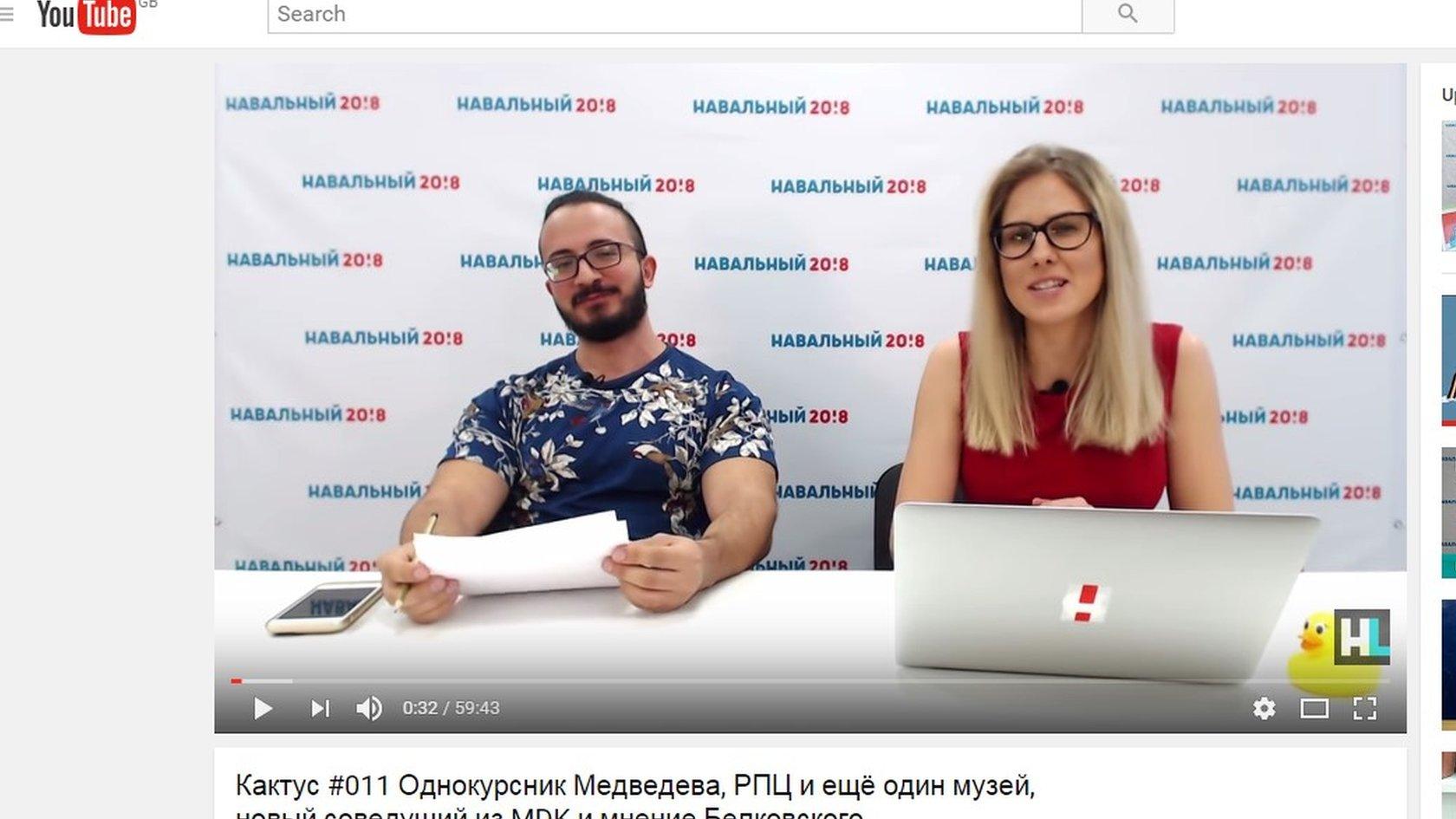
- Published27 March 2017
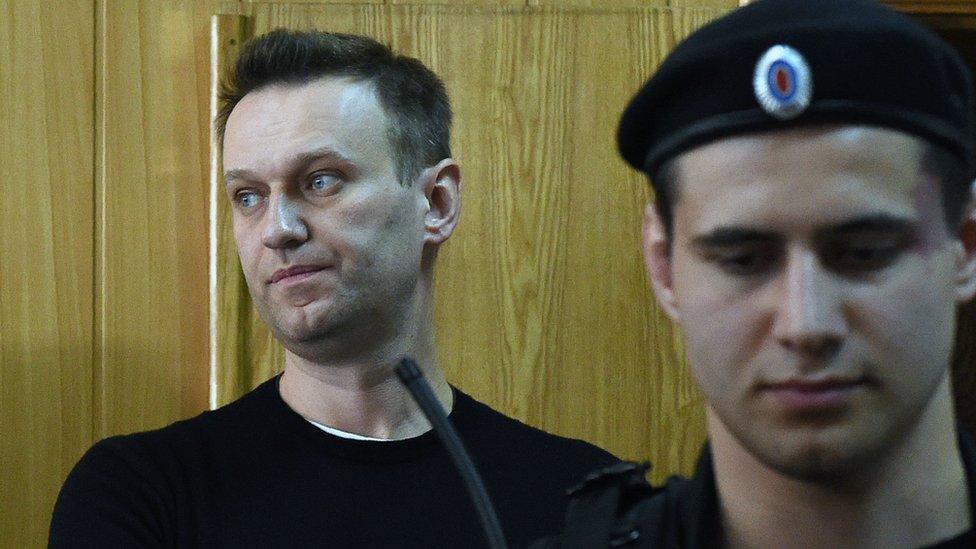
- Published27 March 2017
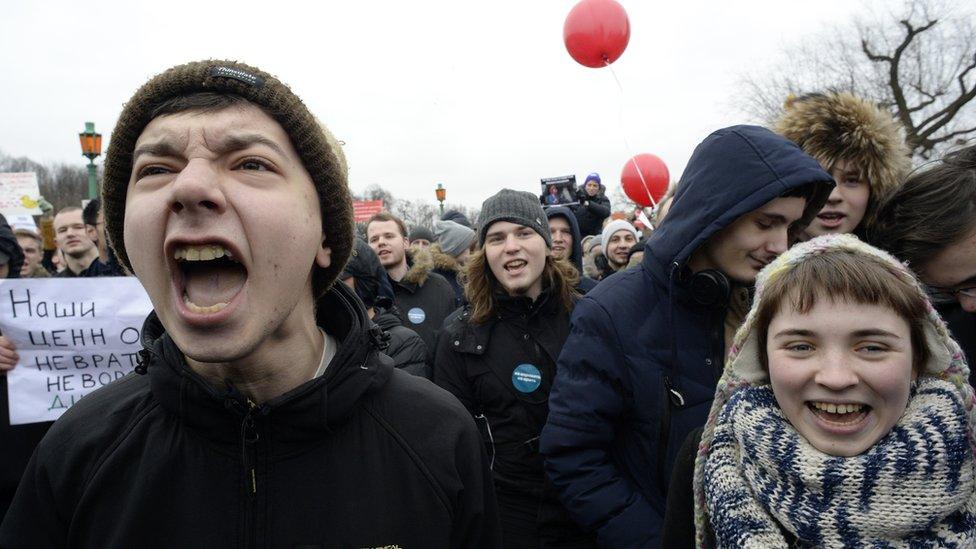
- Published16 February 2024
